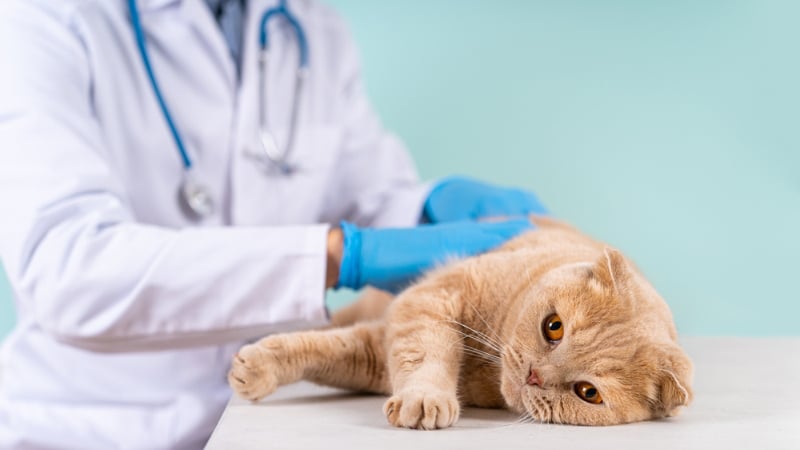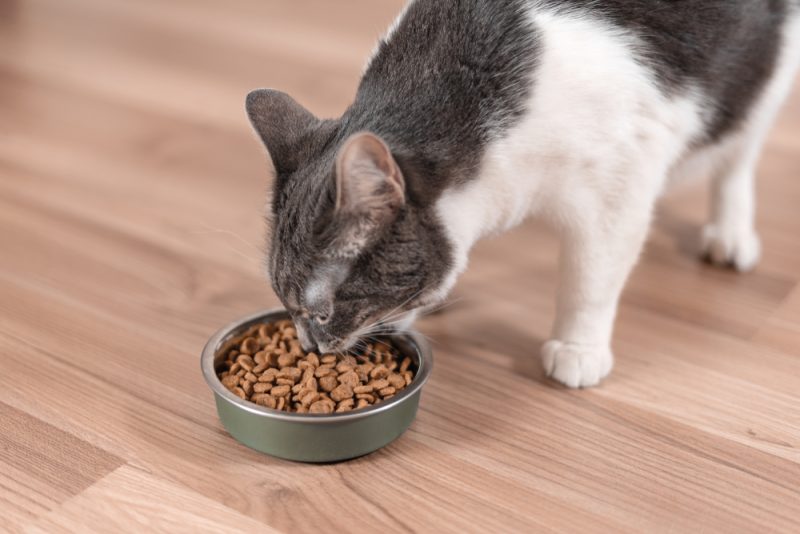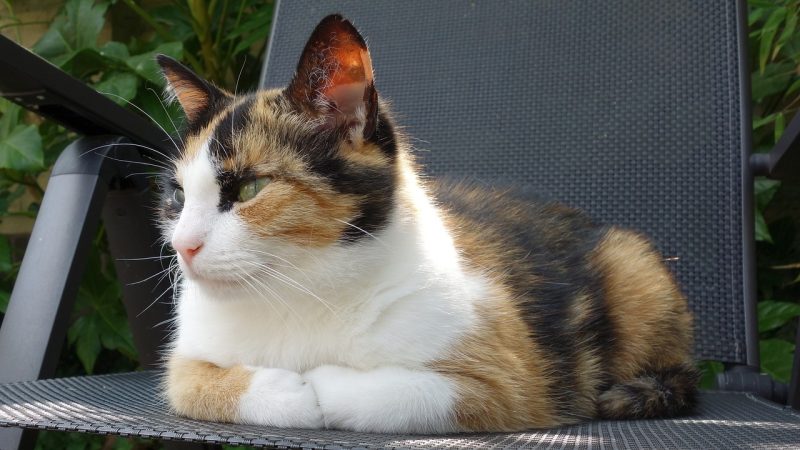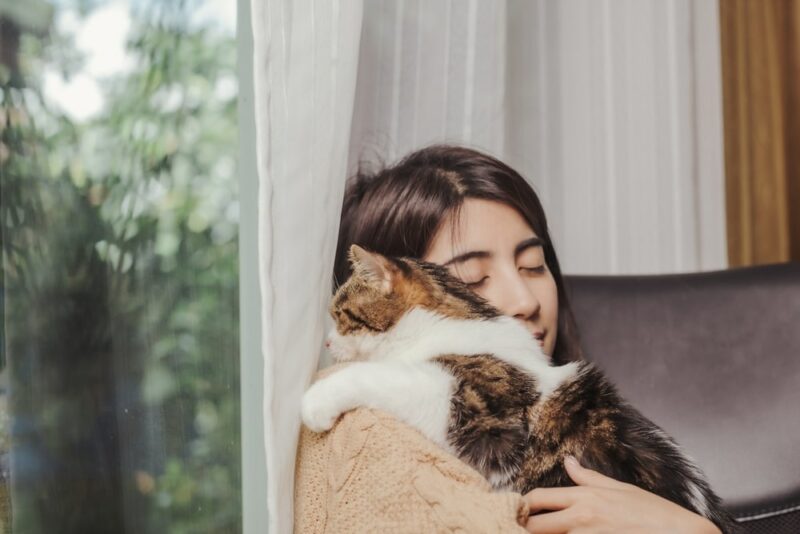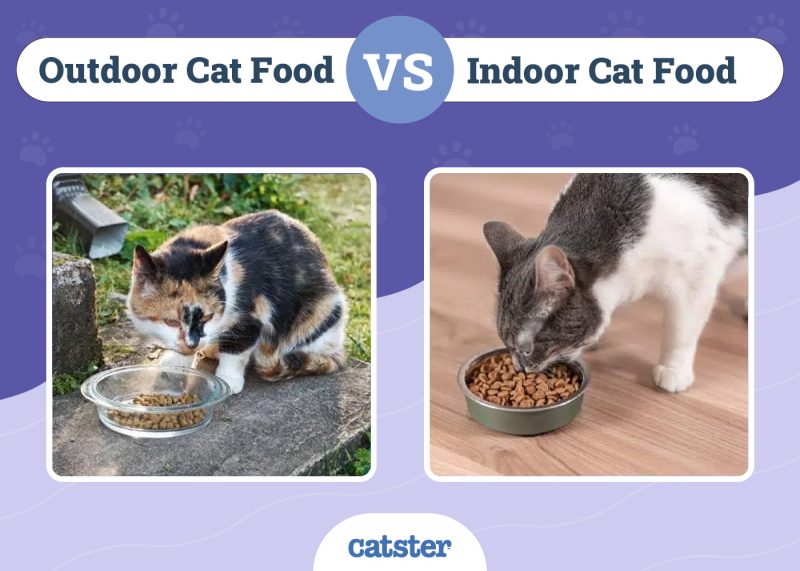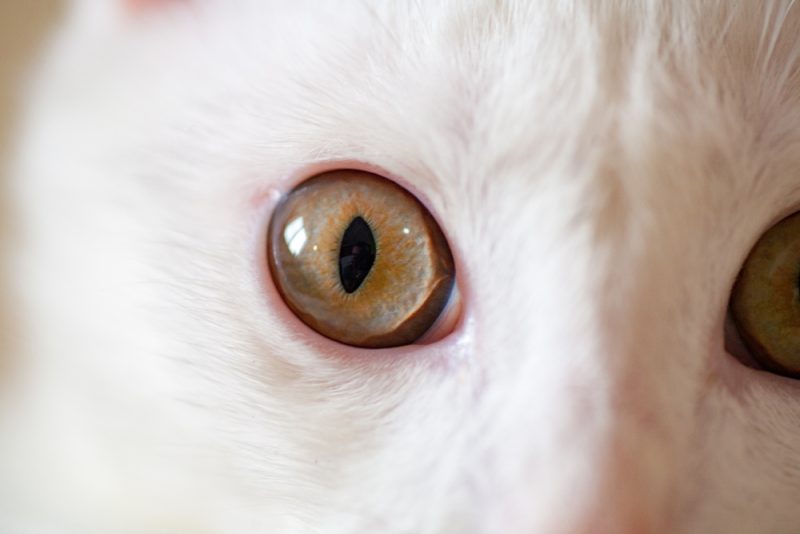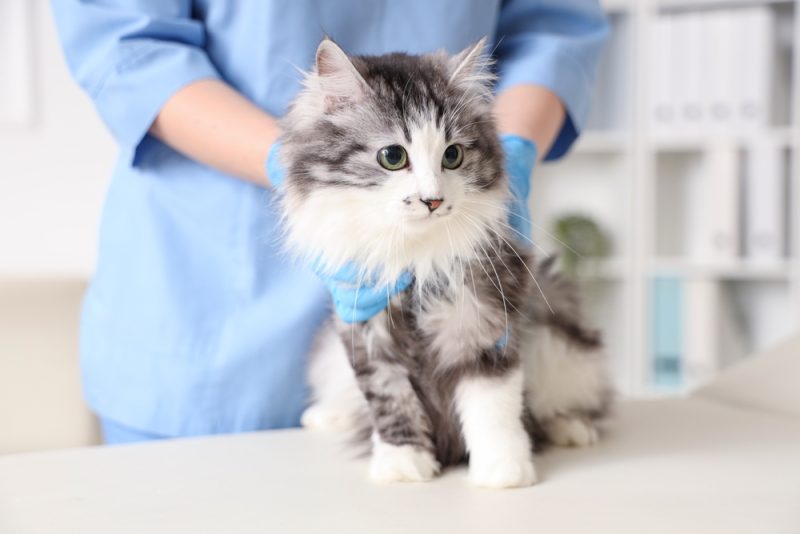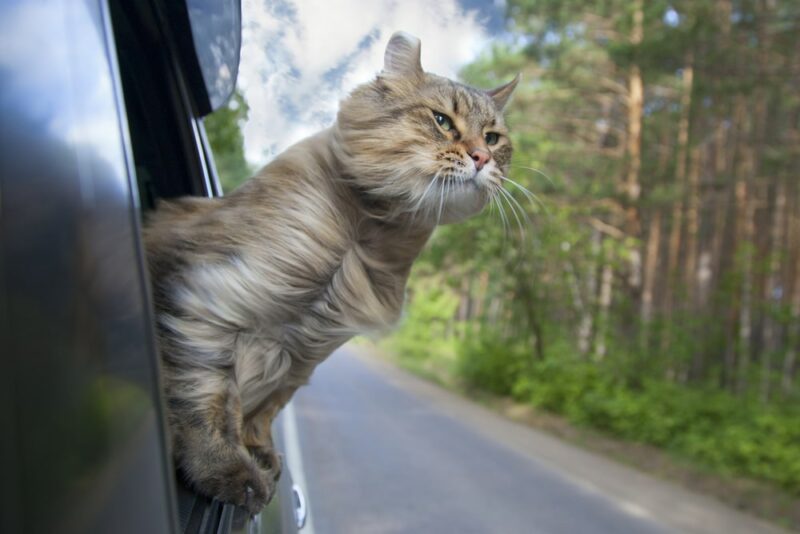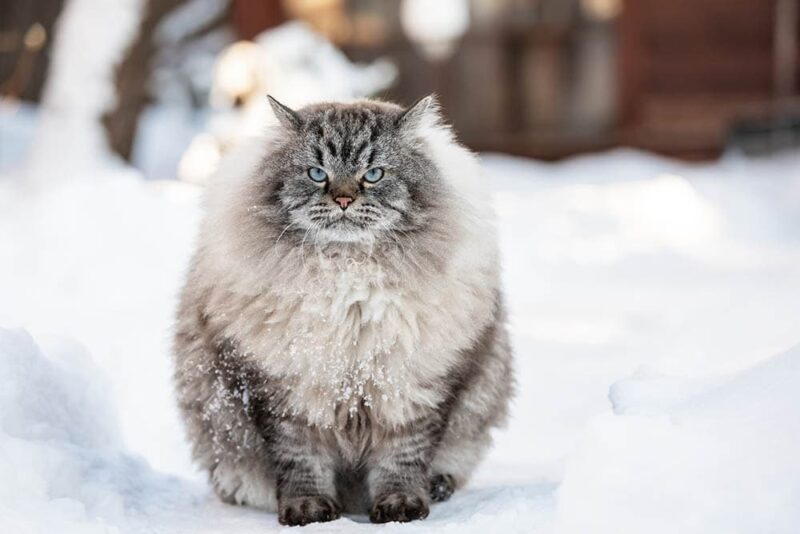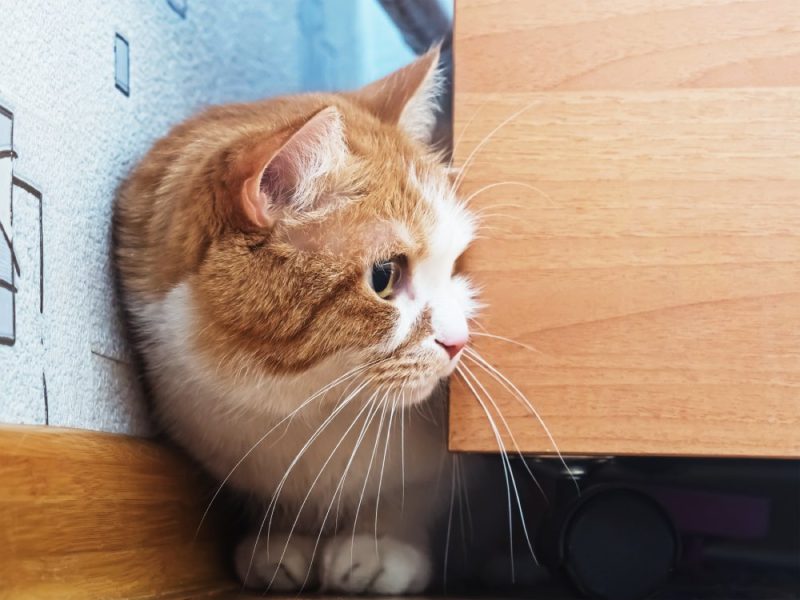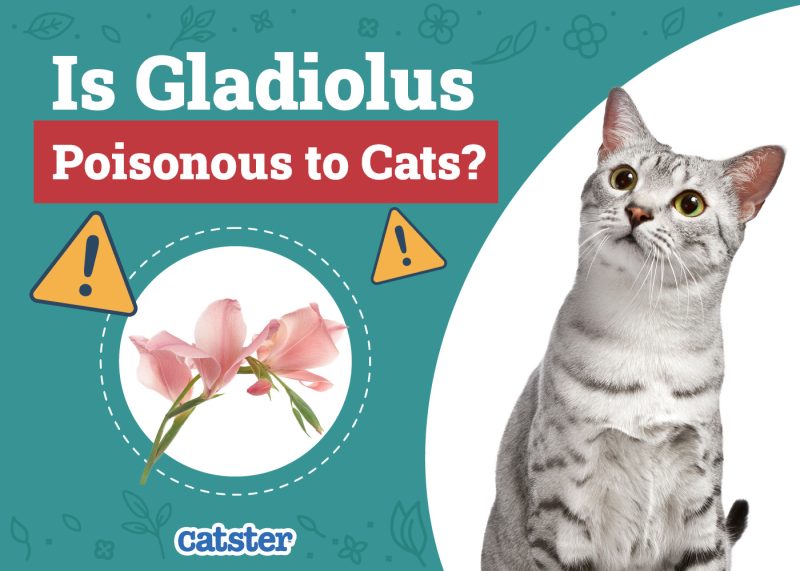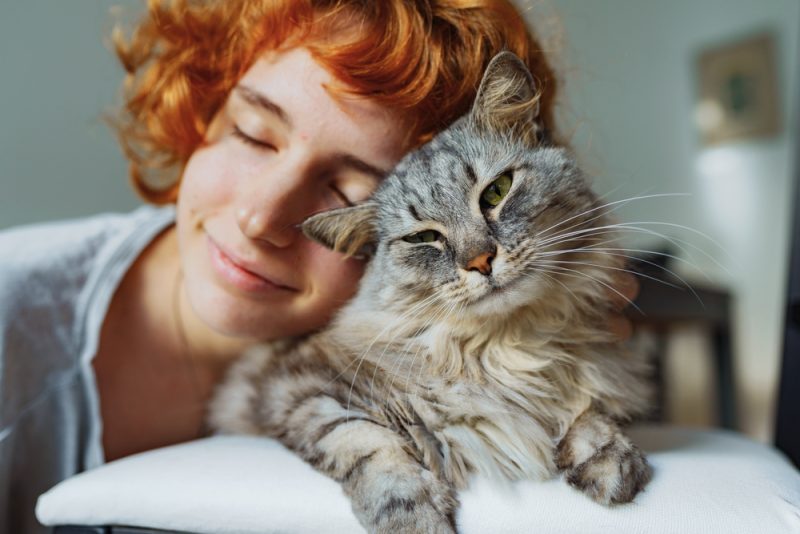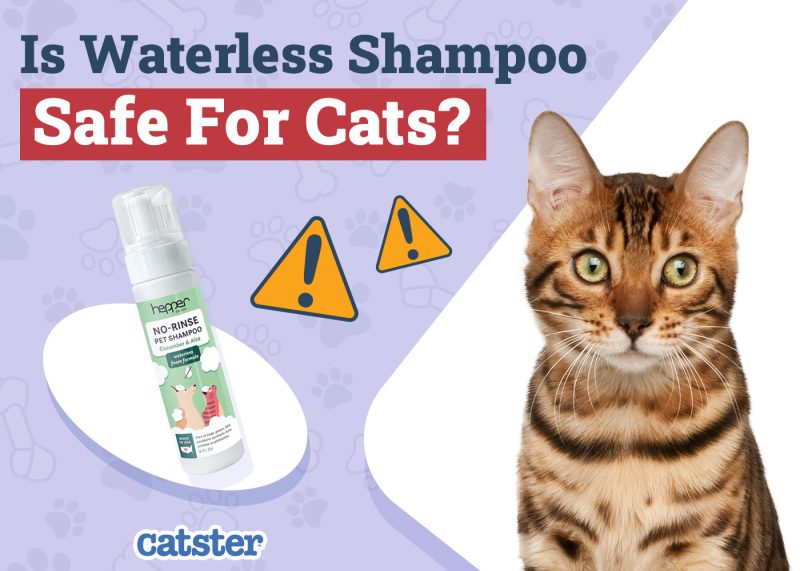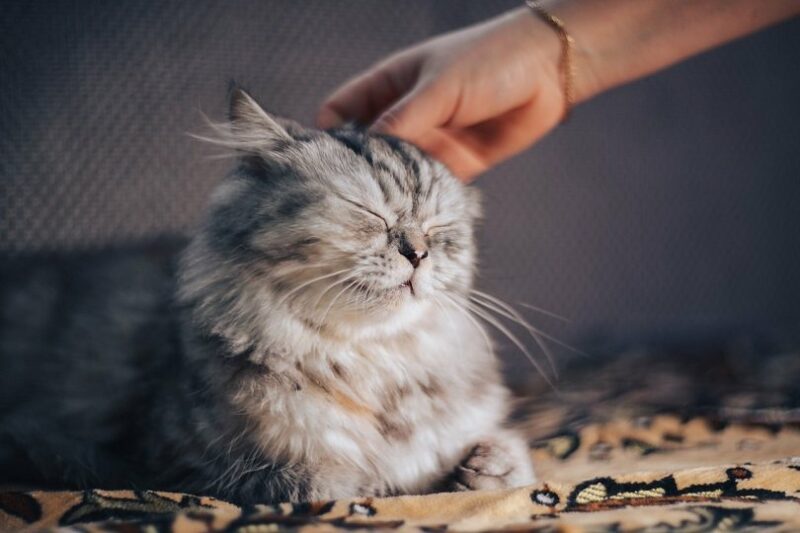Some of our readers may be familiar with anal sacs as a common source of irritation in dogs, but did you know that cats can suffer from anal gland problems as well? Excessive licking, smelly discharge, a sore bottom, and scooting are common signs that your cat may be experiencing anal gland issues.
In the following article, we are going to take a closer look at how to recognize and treat anal sac disease in cats, as well as some common problems that might also give our feline friends a real pain in the behind.

What Are Anal Sacs?
The terms “anal sac” and “anal gland” are often used interchangeably, but this is not technically accurate. The anal sacs, which are small, blind-ending structures that sit on either side of the anus, are lined with anal glands, which produce the fluid that you might be familiar with. This fluid, similar to that produced by skunks, can sometimes smell fishy, fetid, or foul to us, but to our pets, it is actually filled with information.
Have you ever wondered why cats and dogs seem to be so interested in having a good sniff of each other’s bottoms, as well as what comes out of them? What they’re actually sniffing is the fluid produced by the anal glands. The glands lining the anal sac are a type of modified sebaceous (sweat) gland that produces a fluid that is packed with pheromones—the olfactory equivalent of a social media profile.
When your cat passes feces, these sacs are squeezed, releasing a small amount of this fluid onto their poop. Other cats that smell this can get an idea of the reproductive status, social standing, and health of the feline in question, and there may be many other messages that this fluid can relay.
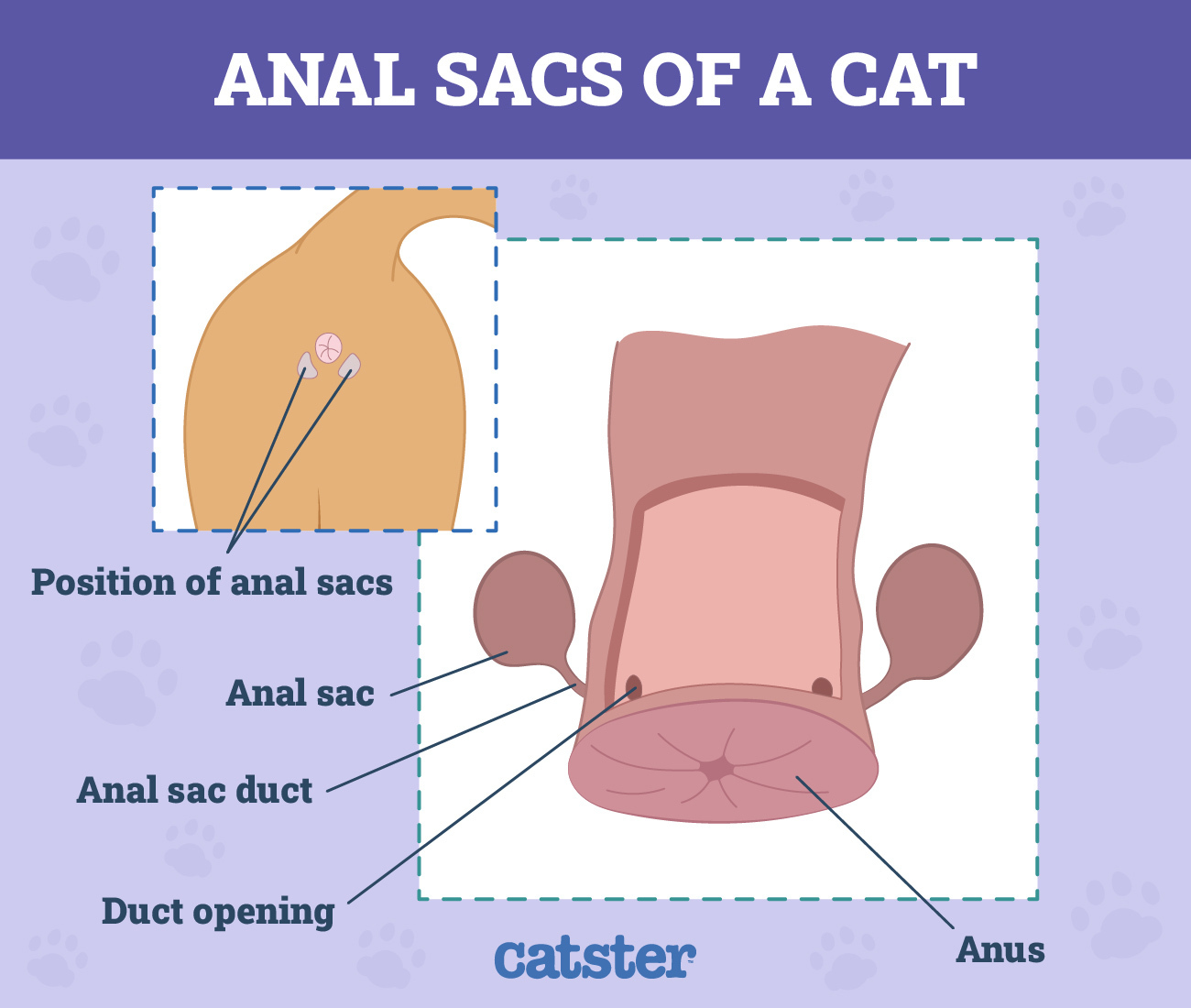
What Causes Anal Sac Disease?
The main cause of anal sac disease, also known as anal sacculitis, is impaction. This can occur if the duct that drains the sac is too narrow to allow fluid to exit, which is a more common issue in dogs. In cats, diet is the usual culprit, with soft stools leading to incomplete emptying of the glands. Over time, the fluid accumulates, dries out, and becomes even more difficult to express. The result is a large, firm gland that makes pooping more difficult, as well as making sitting quite uncomfortable.
If your cat has had a bout of diarrhea or tends to produce small, soft stools, they may be at risk of developing impacted anal sacs, as there needs to be pressure generated while defecating in order to naturally empty them.
Cats that are stressed or surrounded by a lot of cats, whether they are sharing their home or in the area outside, can often end up producing an excessive amount of anal gland fluid as their body tries to send a passive-aggressive message to the other felines in the area. This can also make them more likely to experience an anal sac impaction.
Anal sacs can also become infected, with abscesses forming within the glandular tissue. This can occur as a result of impaction but can also occur on its own. Although rare in cats, anal sac tumors can also occur.
How Is Anal Sac Disease Treated?
In the case of anal sac impaction, your veterinarian will manually empty the sacs by squeezing them with their fingers. This can be a rather unpleasant experience, but one that is usually over with quickly. If your cat is in pain or particularly uncooperative, they may need to be sedated.
If the sac is infected, your cat will need to take antibiotics, and the sac or abscess may need to be flushed under a general anesthetic. They will also be given anti-inflammatory pain relief as they recover.
If your vet suspects a tumor, they will need to take a fine needle biopsy to confirm the diagnosis. Tumors can be surgically removed, and if done so early, removal is often curative.
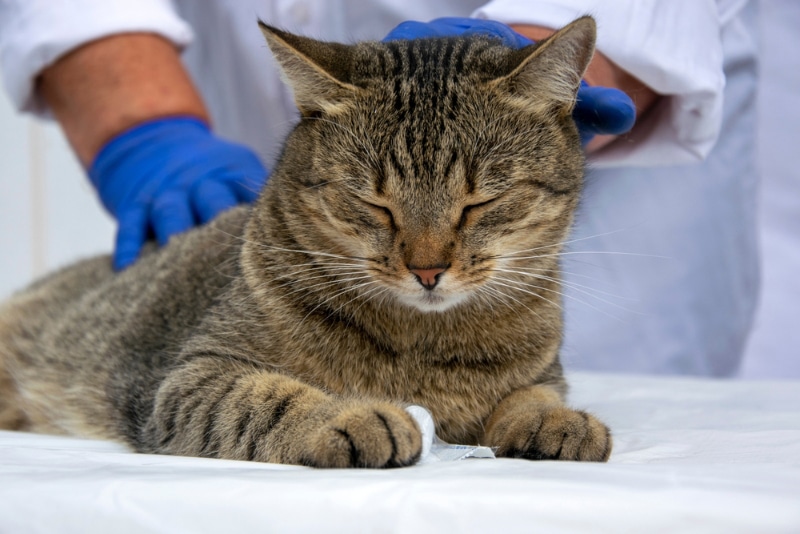
What Are the Signs of Anal Sac Disease?
The main signs of anal sac disease are:
- Excessive licking of and around the anus.
- Very smelly bottom or fluid. You might notice this in an area where your cat has been sitting and sleeping.
- Painful bottom. Sometimes cats will jump up as if they have been bitten, yowl when going to the toilet, or be grumpy or aggressive, particularly when touched near the back end
- This is less common in cats than in dogs and is the classic dragging of the bottom along the floor in an attempt to get relief from the pressure inside the sacs
Impaction, Infection, or Tumor?
Only your vet can properly diagnose anal sac disease in your cat, but as a basic rule of thumb:
- Anal sac impaction is usually bilateral, with minimal external signs.
- Anal sac infection is usually unilateral, and you can often see redness or swelling next to the anus on one side. The abscess may rupture, causing a sinus or hole in the skin that blood and pus drain out of. Anal sac infection is often quite painful but usually feels better once the abscess has ruptured.
- Anal sac tumors tend to be less painful, but you may be able to see some swelling beside the bottom. They will also be unilateral.
Because cat bottoms are usually quite fluffy, it can be difficult to tell the difference, so you should always make an appointment with your vet if your cat starts showing signs of bottom discomfort or pain.
How Can I Prevent Anal Sacculitis?
Being that the leading cause of anal sacculitis is impaction or blockage, the most important way to avoid this situation is by having well-formed, firm stools. Small, soft feces will not exert pressure on the sacs, leading to the accumulation and drying of the fluid, which, as we know, is how these sacs become blocked.
Cats on a high-quality diet rarely experience issues with their anal sacs, as their stools tend to be of good quality. Cats fed lower-quality foods, or those that suffer from sensitive digestive systems, are more likely to suffer from anal sacculitis.
The most important thing we can do to help our cats avoid this painful problem is to:
- Talk to your vet about what might be causing your cat’s anal sac issues.
- Feed your cat a high-quality diet that results in nice, firm stools.
- Consider adding fiber into the diet to help improve the quality of their stools, especially if your cat is prone to anal sac disease or inflammatory bowel issues. Small amounts of pumpkin can be a tasty way to achieve this, or there are a number of different types of high-fiber foods or supplements that can help keep your kitty regular, as well as reduce the formation of hairballs.

Frequently Asked Questions (FAQs)
Do Cats Need Their Anal Sacs Emptied Regularly?
No. Unless your cat is showing signs of anal sac problems, they are best left alone. Cats that have a history of anal sac issues will benefit from regular checkups to see if they need emptying, but this should be done by your vet.
Can Cats Have Their Anal Sacs Removed?
Surgical removal of the sacs, or anal sacculectomy, is a procedure only used when absolutely necessary (i.e., in the case of tumors), or when recurrent anal sac problems are negatively impacting their quality of life. Because the anal sacs are located very close to the muscles and nerves that control the anal sphincter, damage to these structures could result in fecal incontinence. Surgical removal of the feline anal sacs also poses a risk of damaging the wall of the rectum.
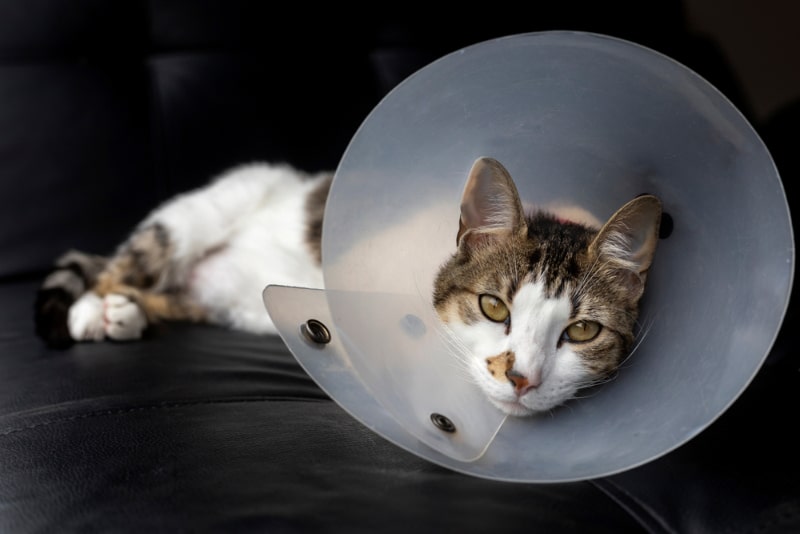
What Are Some Other Conditions of the Feline Bottom?
If your cat is spending an unusual amount of time tending to their bottom area, there are a few other conditions that you should be aware of.
- Rectal strictures: Formed by scar tissue or membrane adhesions in the rectal lining, these can create narrowed areas within the rectum. Most of the time, they are fairly harmless, but you might notice some fresh blood on your cat’s poop occasionally. In more serious cases, defecation can become painful. These cases are usually managed with diet modification and pain relief.
- Urinary tract disease: Infection or inflammation of the bladder or urethra can result in excessive licking and grooming of the genital area, as well as increased visits to the litter box, straining, or toileting outside the box.
- Rectal prolapse: Usually caused by excessive straining, this can result from chronic diarrhea, constipation, intestinal worms, or neoplasia (cancer). The action of straining causes swelling of the rectal lining and eventually leads to the most distal part of the rectal tissue being pushed out the anus. This is an emergency and, even with prompt treatment, can become a recurrent problem.
If you are concerned or have questions about your cat’s health, you can also speak to a vet from the comfort of your own home to help make a plan. They can determine when an in-clinic vet visit should be made.

Final Thoughts
While cats are usually fastidious about being clean, spending an unusual amount of time focused on the behind could be a sign of anal sac disease. Your cat should be examined by a vet if they are showing any of the above signs of bottom discomfort. In most cases, a squeeze of the anal sacs will solve the issue, but often, a change in diet is in order. There are some more serious issues that can cause your feline to focus on their behind, all of which need help from your vet.
Fortunately, more sinister types of anal sac disease are relatively rare in cats. If your cat suffers from anal sac issues, talk to your vet about what you can do to improve the situation. A high-quality diet with a healthy fiber source to promote firm, formed feces is the best way to avoid issues with these scent glands and stop your feline from suffering from pain in their bottom.
- See also: Why Is My Cat’s Butt Red? Common Reasons
Featured Image Credit: Dina Photo Stories, Shutterstock
